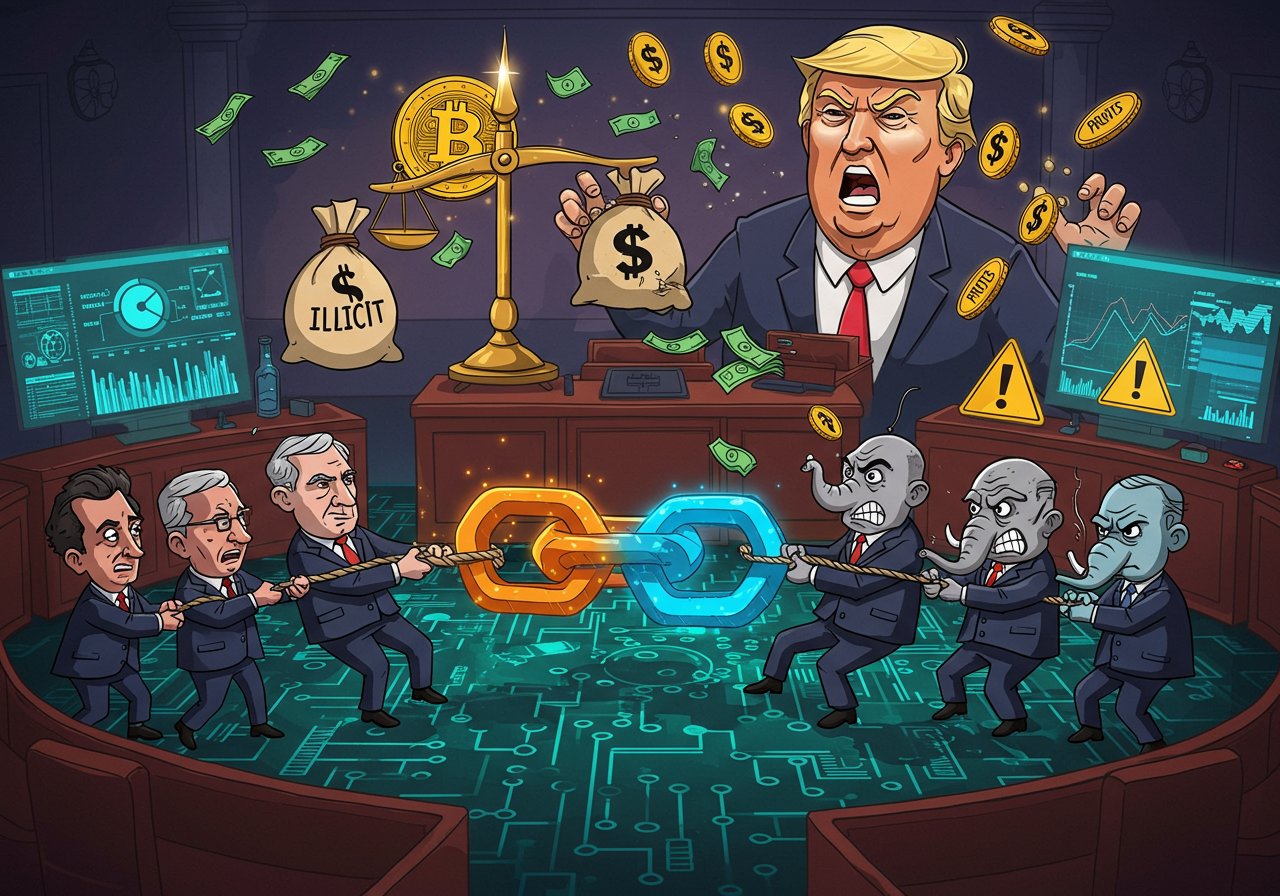
Dueling Visions: Democrats Challenge Crypto Market Structure Bill
The U.S. Senate‘s ongoing debate surrounding the regulation of digital assets has taken a new turn. A group of Democratic senators has released their own framework for crypto market structure, injecting a dose of political complexity into an already intricate legislative landscape. This move, seemingly designed to counter Republican-led efforts, could significantly influence the final shape of any forthcoming legislation.
This new framework arrives as the Republican-backed Responsible Financial Innovation Act gains traction. The Democratic plan, however, carves out its own path, emphasizing consumer protection, the prevention of illicit finance, and addressing perceived weaknesses in the current regulatory landscape. The senators, several of whom hold seats on the influential banking committee, are signaling their intent to play a pivotal role in shaping the future of crypto regulation.
Key Pillars of the Democratic Framework
The Democratic framework, detailed across “seven key pillars,” tackles several critical areas. The senators are focused on enhancing protections against illicit finance and closing perceived gaps in the spot market for digital assets that are not classified as securities. Furthermore, the document includes a particularly pointed critique of former President Donald Trump, highlighting potential conflicts of interest stemming from his family’s involvement in the crypto space. This bold move underscores the partisan divides and potential roadblocks that any future legislation may face.
One of the critical areas of focus is ensuring sufficient resources for the Securities and Exchange Commission (SEC), the Commodity Futures Trading Commission (CFTC), and the Treasury Department. The framework also raises concerns about the leadership at the CFTC, currently operating with a diminished number of commissioners. The Senate is awaiting the confirmation of Brian Quintenz to replace acting chair Caroline Pham.
Bipartisan Hurdles and the Road Ahead
The prospects of achieving a truly bipartisan outcome appear uncertain. The Senate Democrats‘ framework, while sharing some common ground with Republican plans, contains elements that could prove contentious. One major area of contention could be recommendations to prevent elected officials and their families from profiting from digital assets while in office. This, coupled with the pointed criticism of Trump’s crypto ties, may create significant friction.
The timeline for any potential bill remains unclear. While Republicans aim to push the bill through the banking committee by October and potentially into law by 2026, the Democratic framework could introduce delays. Achieving a strong, bipartisan agreement will demand considerable time and compromise.
“We owe it to the millions of Americans who participate in this market to create clear rules of the road that protect consumers and safeguard our markets,” the senators wrote. “We also must ensure that digital assets are not used to finance illicit activities or to line the pockets of politicians and their families.”
As the legislative process unfolds, stakeholders will closely monitor how these competing frameworks interact and ultimately shape the future of crypto regulation in the United States. The outcome will likely have a significant impact on investors, the broader financial system, and the direction of the burgeoning digital asset market.


